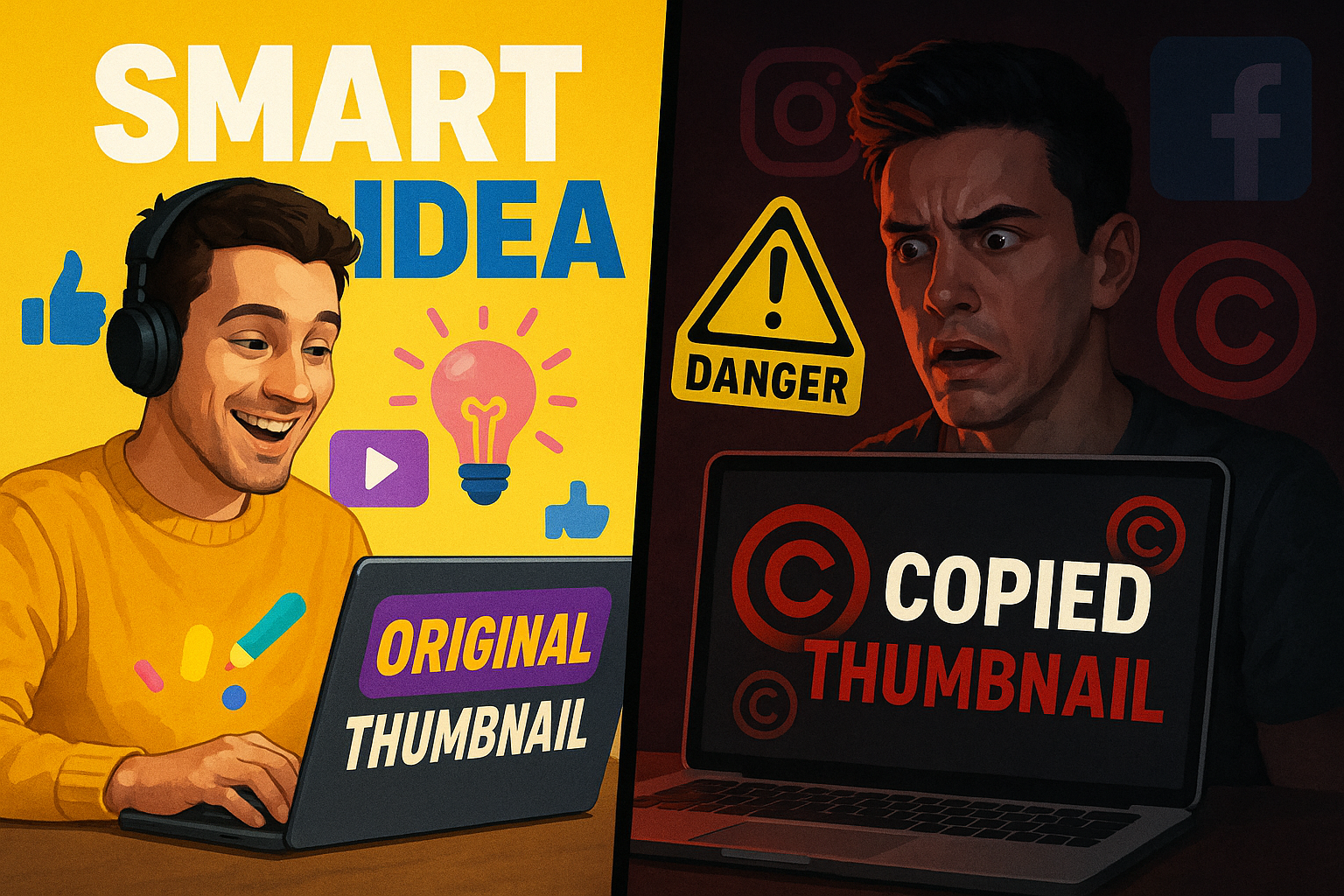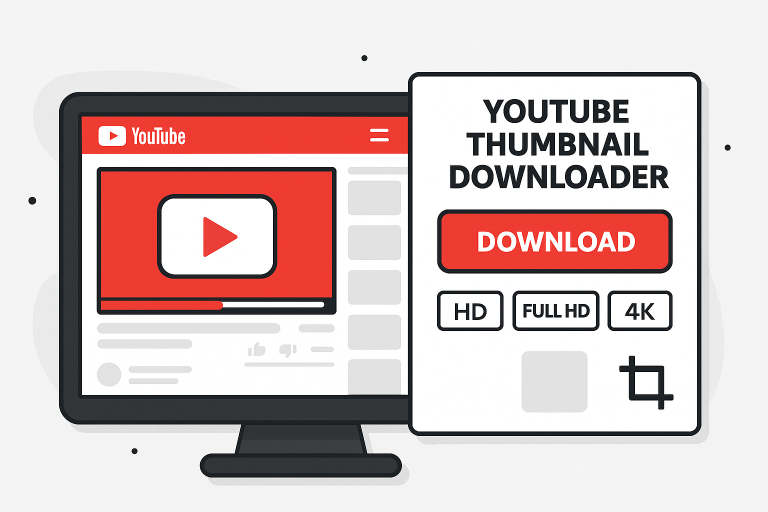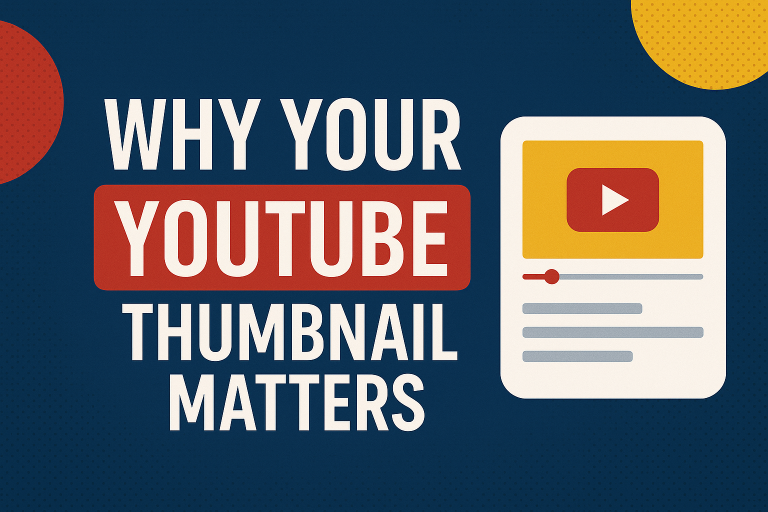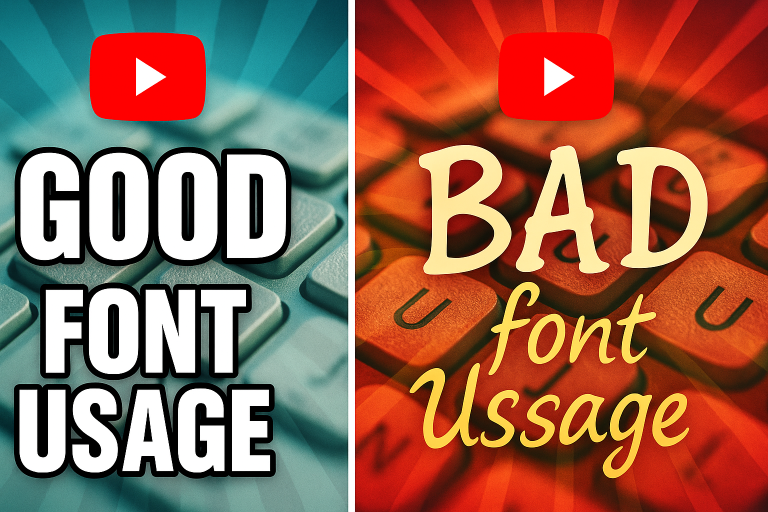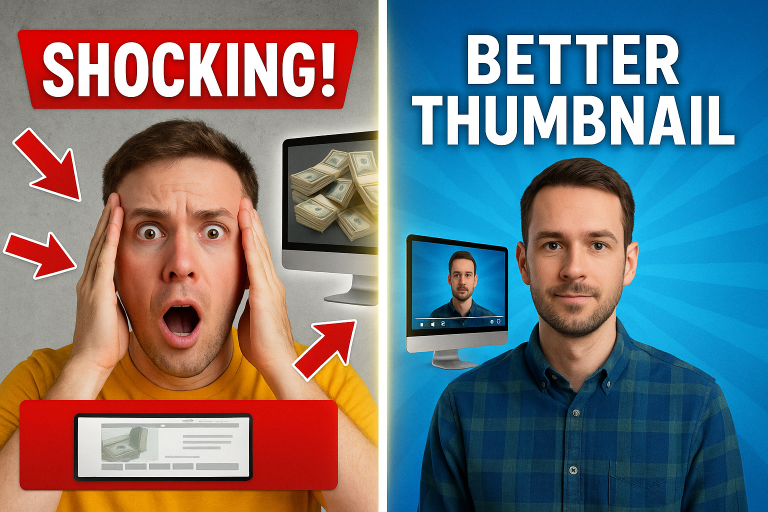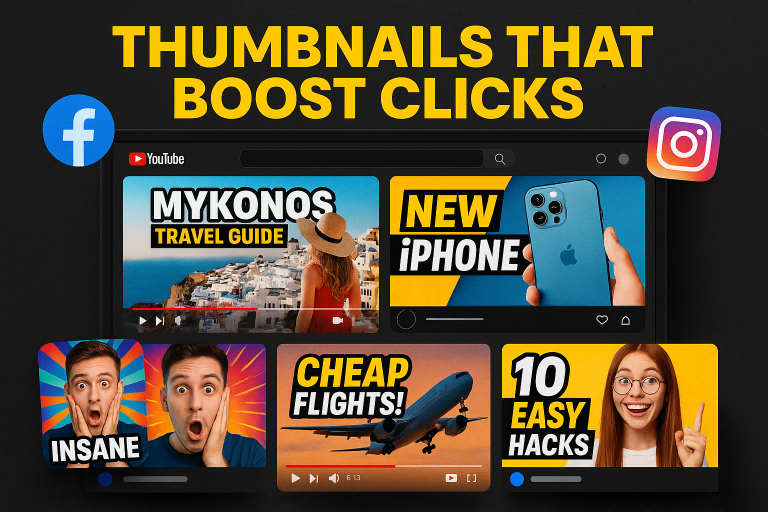Copying Thumbnails | Smart Idea or Copyright Danger
When it comes to YouTube success, creators put countless hours into planning content, editing videos, and writing titles. But there’s one small element that can make or break your channel growth — thumbnails. These clickable images act as your video’s “cover,” and viewers often decide in just a few seconds whether they’ll watch your content or skip it.
That’s where the debate starts: is copying thumbnails from other creators a smart idea or a copyright danger? In this article, we’ll explore the pros and cons of copying thumbnails, copyright rules you must know, and safe ways to create attractive designs that boost clicks.
What Does Copying Thumbnails Mean?
Copying thumbnails refers to downloading or imitating another creator’s video thumbnail and using it for your own video. Some creators do this by directly using a YouTube thumbnail downloader or YouTube thumbnail grabber to extract and re-upload the image. Others may try to replicate the style, fonts, or background of a successful thumbnail without making original changes.
While this may seem like a quick way to gain clicks, it raises serious questions about copyright ownership and originality.
Why Some Creators Copy Thumbnails (The “Smart Idea” Argument)
Supporters of copying thumbnails argue that it’s a smart strategy because:
- Proven Designs Work – If a thumbnail has already gone viral, copying its style may also attract high click-through rates (CTR).
- Saves Time – Instead of designing from scratch, using an existing template or thumbnail is faster.
- Beginner Advantage – New YouTubers who struggle with design might use existing thumbnails as inspiration or even direct copies.
- Trend Following – Copying viral YouTube thumbnail fonts or thumbnail backgrounds can help match trending styles that audiences already like.
At first glance, this sounds like a shortcut to success. But is it really safe?
The Copyright Danger of Copying Thumbnails
Here’s the negative side: copying thumbnails can be a copyright violation. A thumbnail is considered an original creative work, just like a video or photo. That means:
- Copyright Infringement – If you use another creator’s thumbnail without permission, YouTube or the owner can take legal action.
- Content ID & Strikes – YouTube may detect copied thumbnails, and your channel risks strikes or even termination.
- Loss of Trust – Viewers notice when you copy others, and it damages your brand reputation.
- Unfair Advantage – Copying thumbnails is often seen as lazy and unethical compared to making your own designs.
This is why blindly using a thumbnail ripper or baixar thumbnail YouTube tool without modification is risky.
Copyright Rules You Must Know
Before you even think of copying thumbnails, understand these copyright rules:
- Fair Use is Limited – In some cases (like commentary, reaction, or parody), using parts of another creator’s work may qualify as fair use. But direct thumbnail copying rarely counts.
- Creative Commons Licenses – Some creators allow their content (including thumbnails) to be reused with credit. Always check licenses first.
- Transformative Use – If you copy an idea but change fonts, colors, or designs significantly, it may not violate copyright.
- YouTube Policies – YouTube prohibits misleading or reused thumbnails. Violating this can reduce visibility or demonetize your video.
Safe Alternatives to Copying Thumbnails
Instead of risking copyright issues, here’s what you can do:
1. Use a YouTube Thumbnail Downloader for Research
A YouTube thumbnail downloader or YouTube thumbnail viewer can be used safely to study competitors’ thumbnails. Instead of copying, analyze:
- What colors stand out?
- Which fonts grab attention?
- How much text is used?
Then create your own original design.
2. Experiment With Thumbnail Fonts & Backgrounds
Try fonts for YouTube thumbnails that are bold, easy to read, and consistent with your branding. Pair them with eye-catching thumbnail backgrounds YouTube audiences love, such as bright contrasts or simple patterns.
3. Create Click-Worthy Designs
Avoid clickbait thumbnails that mislead viewers. Instead, design thumbnails that highlight the real value of your video. Tools like Photoshop, Canva, or thumbnail makers can help.
4. Test & Optimize Thumbnails
YouTube now allows A/B testing for thumbnails, which means you can upload two designs and see which performs better. This way, you don’t need to copy — you can discover what works for your own audience.
Pros and Cons of Copying Thumbnails
| Pros (Positive) | Cons (Negative) |
|---|---|
| Saves time | Copyright violation risk |
| Uses proven designs | Can lead to strikes or bans |
| Beginner-friendly | Damages trust & reputation |
| Helps follow trends | Viewed as unoriginal & lazy |
Final Verdict: Smart Idea or Copyright Danger?
So, is copying thumbnails really worth it?
- As a shortcut, it may look like a smart idea at first.
- But in the long run, it’s a copyright danger that can harm your channel, reputation, and even your career.
Instead of copying, use tools like a YouTube thumbnail grabber for research, learn from successful thumbnails, and design your own original, eye-catching versions.
If you want to explore thumbnails, fonts, and ideas safely, try tools like ytthumbnails.org — a free platform to download, preview, and resize YouTube thumbnails for inspiration only (not for direct reuse).
Conclusion
Copying thumbnails may seem like a smart idea at first, but in reality, it can lead to copyright dangers and even harm your channel’s growth. Instead of directly copying, focus on creating unique designs that reflect your content and brand. Just like on Instagram and Facebook, where original visuals stand out and attract more engagement, YouTube also rewards creativity and authenticity. Use tools to study styles, test what works, and then design thumbnails that are uniquely yours. By avoiding shortcuts and respecting copyright, you’ll build trust, grow your audience, and stay safe across all platforms.

